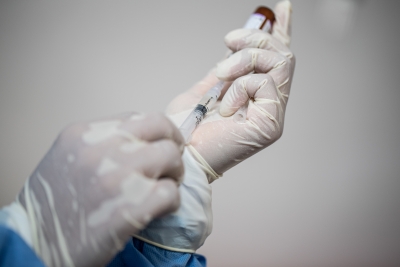Society & Politics
- Ethical concerns over Covid vaccines. The highly promising test results from various Covid-19 vaccines – particularly those produced by Pfizer, Astrazeneca and Moderna – have provided enormous relief and hope to a world overtaken by the spread of the coronavirus over the past eight months. But for a great many, the proposed vaccines raise a number of significant ethical questions – not least the safety of the vaccines given the haste with which they have been produced. Another issue of concern is the use of foetal cells in vaccine production, although this isn't in fact a recent development. Some of the vaccines currently used to prevent diseases such as rubella, measles, hepatitis A, chickenpox and smallpox are all produced using tissues from human abortions. Scientists insist that foetal cells used in vaccine development are derived from a small number of foetuses which were legally terminated decades ago. They're not the actual original cells; rather, they've been immortalised and then propagated over the decades. This means no newly aborted foetuses are required. While this may help allay the fears of some, concerns do remain. Read more here, here and here.
- Compulsory vaccinations? Meanwhile, concerns have also been raised as to whether approved vaccines will be compulsory. In a recent interview, Secretary of State for Health, Matt Hancock, refused to rule out their compulsory enforcement in the UK. However, when the Danish government declared that it would introduce a law making Covid vaccination compulsory in that country, it was followed by a number of angry protests across the nation, reportedly prompting the government to back down. Read more here.
Church Issues
- Launch of Faith Engagement Review. A public consultation known as the Independent Faith Engagement Review has been launched on how best the government should engage with faith groups. The government is making a Call for Evidence, in the form of a lengthy questionnaire, in which individuals can make their own personal responses. Some church groups are concerned that it will be used by humanist groups to launch a sustained attack and campaign, not least because there are some very specific questions about ‘faith schools’ and RE. The Bishop of London is requesting that Christians across the country make a response to the consultation en masse. There is a very limited time-window to respond, and the consultation closes on 11th December. Click here to engage.
- Church of England paves the way for same-sex marriages. After three years of behind-closed-doors arguments on the issue, the Church of England could hold an historic vote on gay marriage by 2022. Archbishops admitted that “talk of truth, holiness and discipleship has been wielded harshly”, and have apologised for the “damage and hurt” caused to the LGBT community. Church leaders have produced a 480-page book, ‘Living in Love and Faith’, with accompanying films, podcasts and education courses to explore the issue. Read more here
- Dozens of doctors speak out against assisted suicide. Over fifty doctors working in palliative medicine and care for dying patients have signed a letter to The Times in opposition to any proposed changes in the assisted suicide law. In particular, the doctors have called attention to a recent British Medical Association survey on assisted suicide which shows the unwillingness of doctors to participate in assisted suicide and euthanasia. Read more here. Meanwhile, New Zealand has voted to legalise euthanasia and assisted suicide, following a public referendum. Read more here.
World Scene
- International Criminal Court accused of 'gross complacency' after decades of violence in Nigeria. The ICC has spent the last decade investigating claims of war crimes in Nigeria by Islamist group, Boko Haram as well as, disturbingly, by Nigeria's own security forces. Yet, after a whole decade, the investigations remain in the preliminary stage. This has resulted in an outcry from the International Organisation for Peace & Social Justice, who demand a quick resolution after such "agonisingly long wait" for justice. Read more here. While the alleged mishandling continues, so does the violence, most of it rarely receiving notice in the international media. Recently, Islamic militants thought to have been associated with Boko Haram have killed at least 12 Christians and kidnapped a number more. Read more here.
- A century ago this week, Russia became first country to legalise abortion. On 18th November 1920, the Russian Soviet Republic became the first country in the world in the modern era to allow abortion in all circumstances. The reason for such action, the state claimed, was to combat the growing numbers of women who were having adverse health effects as a result of illegal abortions. Since then, it is estimated that legal abortion has resulted in about one billion abortions worldwide in the past 100 years, making it arguably the greatest genocide in history. Read more here.
Israel & Middle East
- UN continues to single out Israel for condemnation. Earlier this month, the United Nations passed as many as seven resolutions condemning Israel, with numerous more estimated to be endorsed by December. Several resolutions addressed UNRWA (the United Nations Relief and Works Agency for Palestinian Refugees), but according to the NGO UN Watch, none of these noted the corruption in UNRWA which that agency is notorious for, and which has been exposed by a UN investigation. Hypocritically, as UN Watch director Hillel Neuer pointed out, the UN stayed silent when the Palestinian Islamic Jihad terrorist group recently attacked Israeli civilians with a barrage of rockets from Gaza. Britain voted in support of all but one of the seven resolutions. Read more here and here.




